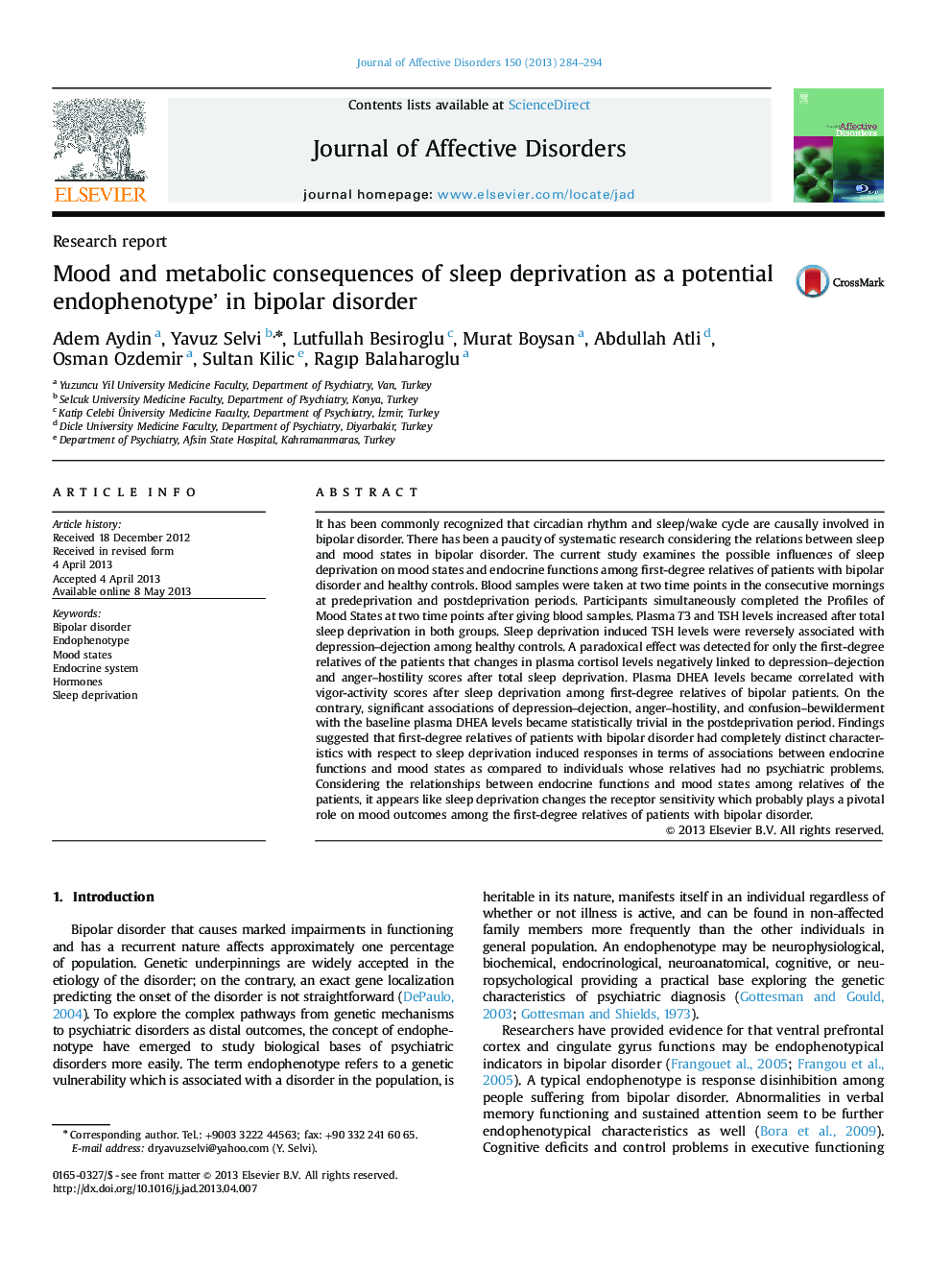| Article ID | Journal | Published Year | Pages | File Type |
|---|---|---|---|---|
| 6234215 | Journal of Affective Disorders | 2013 | 11 Pages |
It has been commonly recognized that circadian rhythm and sleep/wake cycle are causally involved in bipolar disorder. There has been a paucity of systematic research considering the relations between sleep and mood states in bipolar disorder. The current study examines the possible influences of sleep deprivation on mood states and endocrine functions among first-degree relatives of patients with bipolar disorder and healthy controls. Blood samples were taken at two time points in the consecutive mornings at predeprivation and postdeprivation periods. Participants simultaneously completed the Profiles of Mood States at two time points after giving blood samples. Plasma T3 and TSH levels increased after total sleep deprivation in both groups. Sleep deprivation induced TSH levels were reversely associated with depression-dejection among healthy controls. A paradoxical effect was detected for only the first-degree relatives of the patients that changes in plasma cortisol levels negatively linked to depression-dejection and anger-hostility scores after total sleep deprivation. Plasma DHEA levels became correlated with vigor-activity scores after sleep deprivation among first-degree relatives of bipolar patients. On the contrary, significant associations of depression-dejection, anger-hostility, and confusion-bewilderment with the baseline plasma DHEA levels became statistically trivial in the postdeprivation period. Findings suggested that first-degree relatives of patients with bipolar disorder had completely distinct characteristics with respect to sleep deprivation induced responses in terms of associations between endocrine functions and mood states as compared to individuals whose relatives had no psychiatric problems. Considering the relationships between endocrine functions and mood states among relatives of the patients, it appears like sleep deprivation changes the receptor sensitivity which probably plays a pivotal role on mood outcomes among the first-degree relatives of patients with bipolar disorder.
